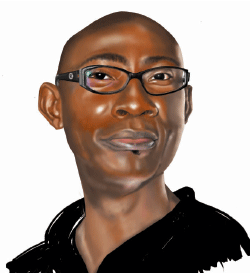The Prime Minister is not personally corrupt – but he is certainly guilty of epic hypocrisy. So, for that matter, are Britain and the West.
“They have spent decades ordering poor countries and failed states to sort out their problems with dodgy money, even while taking much of that dodgy money and ploughing it through their banks, their ritzy stores, their estate agents, and their offshore tax havens – with barely any questions asked or eyebrows raised.” – The Guardian (UK)
It will take a while before the dust settles on British Prime Minister, David Cameron’s comment on Tuesday, May 10 that Nigeria is “fantastically corrupt”.
While briefing the Queen of England, Elizabeth II, after a cabinet meeting ahead of the Anti-Corruption Summit on Thursday, May 12 – where President Muhammadu Buhari was billed to give a keynote address – Cameron tagged Nigeria alongside Afghanistan as “fantastically corrupt” nations.
He was speaking at Buckingham Palace at an event to mark the Queen’s 90th birthday where other public figures like the Archbishop of Canterbury, Justin Welby, and House of Commons Speaker, John Bercow, were in attendance.
Like a fief who had gone to brief the lord of the manor, Cameron told the Queen that “we’ve got some leaders of some fantastically corrupt countries coming to Britain … Nigeria and Afghanistan, possibly the two most corrupt countries in the world.”
Welby countered: “But this particular president is not corrupt … he’s trying very hard.” And Bercow asked: “They are coming at their own expense, one assumes?”
Realising the enormity of his snide comment on Nigeria, over which British newspapers and the Parliament had taken him up, Cameron on Wednesday, May 11 clarified that Nigeria and Afghanistan had taken “remarkable steps forward” on corruption.
His confidence as he briefed Parliament was based on a collection of essays Buhari and Afghanistan President, Ashraf Ghani, wrote on the scale of corruption in their countries.
Number 10 Downing Street, apparently feeling embarrassed, issued a statement saying that both Buhari and Ghani “have acknowledged the scale of the corruption challenge they face in their countries.
“In a collection of essays on the fight against corruption to be published on the day of the Summit … Ghani writes that Afghanistan is ‘one of the most corrupt countries on earth’ while … Buhari writes that corruption became a ‘way of life’ in his country under ‘supposedly accountable democratic governments’.
“Both leaders have been invited to the Summit because they are driving the fight against corruption in their countries.
“The UK (United Kingdom) stands shoulder to shoulder with them as they do so. We cannot comment on a conversation between the PM and the Queen.”
Cameron was merely referring to what the two leaders themselves had said about their countries. But behind the scenes diplomatic engagements must be going on now to mitigate the negative impact of his undiplomatic comment.
Handlers of Cameron’s ill-conceived comment may have realised that his gaffe had touched the nerve of Nigeria’s relations with the UK, bringing back a sad memory of colonisation in which Britain was the arrowhead.
When Buhari was asked if he anticipated an apology over Cameron’s comment, he put it succinctly that he was not after apology but the money Britain has helped some corrupt Nigerians stash away. That speaks volumes.
“I am not going to be demanding any apology from anybody. What I will be demanding is the return of assets. I have already mentioned how Britain led and how disgraceful one of Nigeria’s executives was.
“He had to dress like a woman to leave Britain and left behind his bank account and fixed assets which Britain is not prepared to hand over to us. That is what I am asking for. What will I do with apology? I need something tangible,” Buhari said.
I am not particularly surprised by Cameron’s comment.
He seems good at deploying wrong phrases to describe situations.
In January this year, he described immigrants as “swarm of people” for which he was also cricised.
What bothers me is that we have not rid ourselves, our psyche, of the colonial mentality we inherited from the West, Britain in particular.
At least three books – Walter Rodney’s How Europe Underdeveloped Africa and Chinweizu’s The West and the Rest of Us and Decolonising the African Mind – explain why Cameron speaks the way he does, and why more of such sinister comments on Nigeria and indeed Africa will dominate public space for many years to come.
Rodney wrote: “The decisiveness of the short period of colonialism and its negative consequences for Africa spring mainly from the fact that Africa lost power.
“Power is the ultimate determinant in human society, being basic to the relations within any group and between groups. It implies the ability to defend one’s interests and if necessary to impose one’s will by any means available.
“In relations between peoples, the question of power determines maneuverability in bargaining, the extent to which a people survive as a physical and cultural entity.
“When one society finds itself forced to relinquish power entirely to another society, that in itself is a form of underdevelopment.”
African leaders are yet to find their feet on governance. They do not understand the concept of power hence they run to Europe and America to seek solution to matters that demand domestic intervention.
Our leaders go outside their shores to denigrate their fellow countrymen without knowing how much damage they are doing to themselves.
Corruption is one of their sing songs any time they are in Europe, America or Asia in search of aid. They magnify crimes committed at home to whip up sentiment so as to hear the West tell them sorry.
Though Buhari appears serious about fighting corruption, he contributes to our diminishing relevance in the international community the way he opens his mouth so wide on Nigerian matters.
That he does not see any credible Nigerian apart from himself, and does not mind to tell any European or American audience so is unfortunate.
Leadership demands that our president also presents the good side of his countrymen and women and not to always condemn all Nigerians in the name of fighting corruption.
Whenever Buhari speaks on the ills of Nigeria outside its shores he may talk about the bad citizens but he must not assume that all the 150 million people he leads are corrupt.
During his electioneering, he made corruption one of his key priorities saying, “if Nigeria doesn’t kill corruption, corruption will kill Nigeria.”
With the arrest of many high-ranking members of the political elite on corruption charges, mainly members of the Peoples Democratic Party (PDP), and their collaborators in the private sector, how else does Buhari want to convince Downing Street that corruption is not a “way of life” in Nigeria as he had earlier made it believe?
He cannot continue to speak out on Nigerian criminals without reference to the honest ones who contribute positively in their different areas of calling both at home and in the Diaspora.
The impression Cameron and some other European, American and Asian leaders have of us is based, first and foremost, on what Buhari and other African leaders tell them.
And that is the easiest way of further subjugating us to their authority as those they colonised. They grab the opportunity to assert the false air of superiority we thrust on them by our failure to get our act together.
That is the reason for Cameron’s fantastic corruption gaffe.













